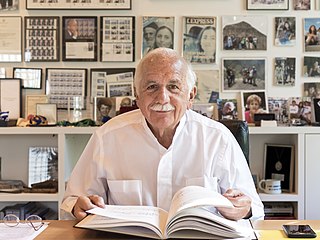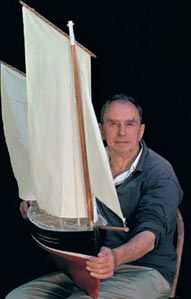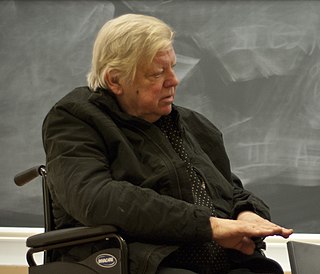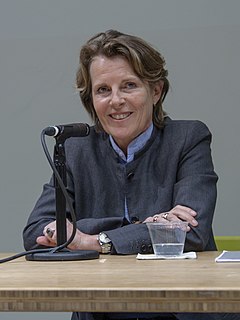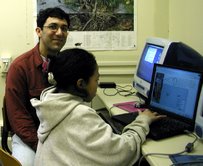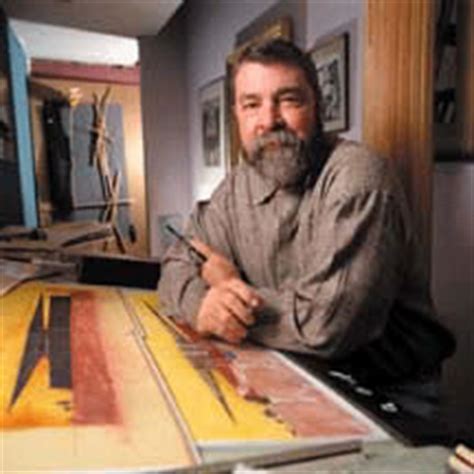Top 1200 Information Architecture Quotes & Sayings - Page 3
Explore popular Information Architecture quotes.
Last updated on October 19, 2024.
Does an architecture to assuage the spirit have a place in all this? Unfortunately we are no longer the interpreters of our culture's myths but the followers of that dubious client, the developer, who has little patience with the art of architecture, the fine detail and obscure promise, which can upset his financial activity.
Information is now a commodity that can be bought and sold, or used as a form of entertainment, or worn like a garment to enhance one's status. It comes indiscriminately, directed at no one in particular, disconnected from usefulness; we are glutted with information, drowning in information, have no control over it, don't know what to do with it.
There have been misperceptions that we're trying to make all the information open on Facebook, and that's completely false. There are big buckets of information that we recommend that you share with only your friends privately. Then some of the more basic information, we recommend that that's visible to everyone.
What has happened is that genetics has become a branch of information technology. It is pure information. It's digital information. It's precisely the kind of information that can be translated digit for digit, byte for byte, into any other kind of information and then translated back again. This is a major revolution. I suppose it's probably "the" major revolution in the whole history of our understanding of ourselves. It's something would have boggled the mind of Darwin, and Darwin would have loved it, I'm absolutely sure.
We hypostatize information into objects. Rearrangement of objects is change in the content of the information; the message has changed. This is a language which we have lost the ability to read. We ourselves are a part of this language; changes in us are changes in the content of the information. We ourselves are information-rich; information enters us, is processed and is then projected outward once more, now in an altered form. We are not aware that we are doing this, that in fact this is all we are doing.
If the soul is impartial in receiving information, it devotes to that information the share of critical investigation the information deserves, and its truth or untruth thus becomes clear. However, if the soul is infected with partisanship for a particular opinion or sect, it accepts without a moment's hesitation the information that is agreeable to it. Prejudice and partisanship obscure the critical faculty and preclude critical investigation. The results is that falsehoods are accepted and transmitted.
Now, of course, architecture is a blind spot of our life in America today. How many millions of students go to the university to be educated? They come away conditioned, not enlightened, and they know nothing of architecture, although they have a department somewhere around -- probably in the basement.
A global society is coming into being, a global society that is made out of information that was not intended to be ours, but is ours, by the mistaken invention of computers and the printing press, information is power, and information has spilled by the clumsy hands of the dominator culture so that the information is everywhere, never before has the situation been so fluid, we might be able to finally have a crack at this
I've always been interested in an architecture of resistance - architecture that has some power over the way we live. Working under adversarial conditions could be seen as a plus because you're offering alternatives. Still, there are situations that make you ask the questions: 'Do I want to be a part of this?'
We believe that we live in the 'age of information,' that there has been an information 'explosion,' an information 'revolution.' While in a certain narrow sense this is the case, in many important ways just the opposite is true. We also live at a moment of deep ignorance, when vital knowledge that humans have always possessed about who we are and where we live seems beyond our reach. An Unenlightenment. An age of missing information.
What is now called 'green architecture' is an opportunistic caricature of a much deeper consideration of the issues related to sustainability that architecture has been engaged with for many years. It was one of the first professions that was deeply concerned with these issues and that had an intellectual response to them.
In the case of health information, I spent twenty-five years practicing medicine, and I was all too familiar with the fact that information wasn't properly shared, so I wouldn't know exactly what was in the hospital records; patients would be lost. Computerization gives the opportunity to actually get the information much better.
The term architecture is used here to describe the attributes of a system as seen by the programmer, i.e., the conceptual structure and functional behavior, as distinct from the organization of the data flow and controls, the logical design, and the physical implementation. i. Additional details concerning the architecture
If you look at the Earth without architecture, it's sometimes a little bit unpleasant. So there is this basic human need to do shelter in the broadest sense of the word, whether it's a movie theater or a simple log cabin in the mountains. This is the core of architecture: To provide a space for human beings.
In a way, architecture is about communication. That's an aspect of the discipline that is somewhat lacking, and there's definitely room for more progression into that area. I suppose that gives me a bit of a different edge. I'm also very, very used to doing a lot of exhaustive research and finding interesting information from different sources.
If you look at the Earth without architecture, its sometimes a little bit unpleasant. So there is this basic human need to do shelter in the broadest sense of the word, whether its a movie theater or a simple log cabin in the mountains. This is the core of architecture: To provide a space for human beings.
What is now called "green architecture" is an opportunistic caricature of a much deeper consideration of the issues related to sustainability that architecture has been engaged with for many years. It was one of the first professions that was deeply concerned with these issues and that had an intellectual response to them.
The bottom line for mathematicians is that the architecture has to be right. In all the mathematics that I did, the essential point was to find the right architecture. It's like building a bridge. Once the main lines of the structure are right, then the details miraculously fit. The problem is the overall design.
Mike Flynn is a fine person, and I asked for his resignation. He respectfully gave it. He is a man who there was a certain amount of information given to Vice President Mike Pence. And I was not happy with the way that information was given. He didn't have to do that, because what he did wasn't wrong - what he did in terms of the information he saw. What was wrong was the way that other people were given that information, because that was classified information that was given illegally. That's the real problem.







